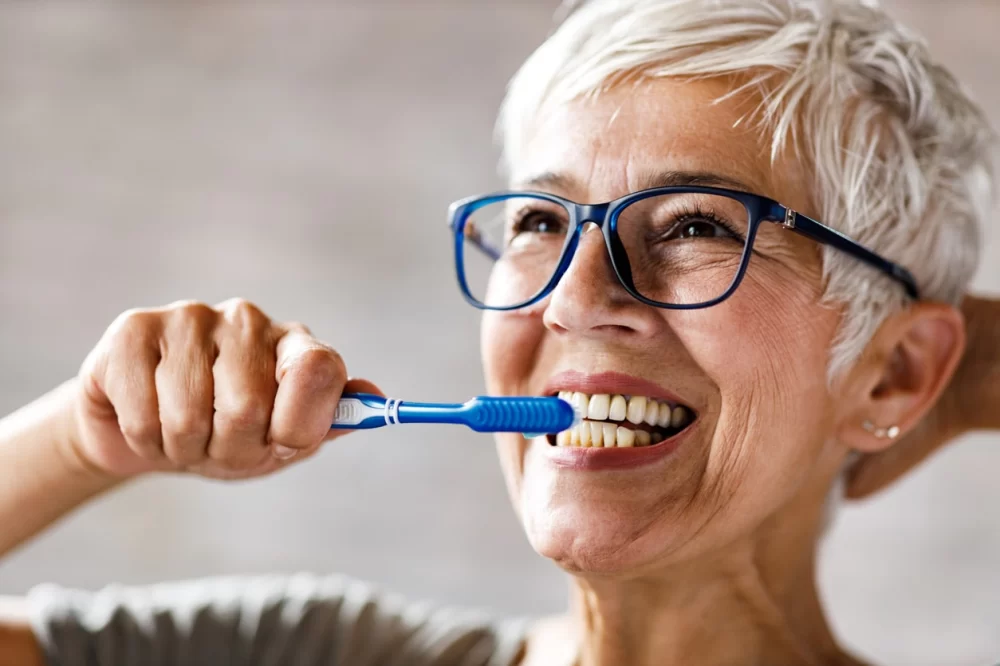
How to Protect Your Gums and Prevent Recession as You Age
As I entered my senior years, I started noticing changes in my dental health. One of the most concerning changes was the gradual recession of my gums. Gum recession, while common in older adults, can lead to tooth sensitivity, increased risk of cavities, and even tooth loss if left unchecked. Over time, I’ve learned a lot about how to prevent gum recession and protect my oral health. I want to share with you the steps I’ve taken, and the lessons I’ve learned along the way, so you can avoid the same pitfalls and keep your gums healthy well into your later years.
1. Understand the Causes of Gum Recession
The first thing I had to do was understand why gum recession happens in the first place. Gum recession can be caused by several factors, but the most common culprits are aging, aggressive brushing, poor oral hygiene, and genetic predisposition. I had always assumed that gum recession was just a normal part of getting older, but I quickly learned that while aging can contribute to gum thinning, it’s not inevitable. In fact, many of the causes of gum recession can be controlled with proper care.
One of the major causes I encountered was brushing too aggressively. In my younger years, I didn’t think much about how hard I brushed, and over time, I wore down my gum line. Aggressive brushing, combined with a hard-bristled toothbrush, can wear away the gums, exposing the tooth roots. I made the change to a soft-bristled toothbrush and started using gentler motions, and I noticed a significant improvement.
2. Use a Soft-Bristled Toothbrush
If there’s one tip I can emphasize from my experience, it’s this: use a soft-bristled toothbrush! I used to think the harder I brushed, the cleaner my teeth would be. But I learned that brushing with too much force can lead to gum recession. Over time, the constant friction from hard bristles can erode the gum tissue, making it more susceptible to infection and damage.
I switched to a soft-bristled toothbrush, which has been a game-changer. It’s gentle on the gums while still providing an effective clean. When brushing, I now focus on using gentle, circular motions rather than scrubbing back and forth. It’s been a simple change, but it’s one of the most effective strategies for preventing further gum recession.
3. Maintain Consistent and Proper Brushing Techniques
Brushing alone is not enough if you’re not doing it the right way. I’ve learned that consistency is key when it comes to brushing, but technique is just as important. Brushing twice a day is essential, but it’s equally important to make sure you’re doing it gently and properly. I’ve noticed a huge difference since I started brushing more carefully, focusing on each tooth and making sure not to skip the gumline.
Proper brushing is especially important for seniors because as we age, our gums naturally recede due to tissue changes. By brushing gently and carefully along the gumline, I’ve been able to prevent unnecessary irritation and further gum loss. In fact, I’ve found that cleaning just below the gumline with soft, circular motions has helped my gums remain healthier than they were before.
4. Flossing Is Key to Gum Health
I’ll be the first to admit that flossing used to be something I didn’t always prioritize. But over time, I realized how important it is for maintaining healthy gums, especially in older adults. Flossing helps remove plaque and food particles from between the teeth and beneath the gumline, areas that are often missed by brushing alone. For me, it was a no-brainer to add flossing into my daily routine, and I quickly saw improvements in both my gum health and my overall oral hygiene.
Flossing is essential for preventing the buildup of plaque, which can lead to gum disease—a major contributor to gum recession. If you’ve never been a consistent flosser, it’s never too late to start. I found that using floss picks or an interdental brush makes it easier to get into tight spaces between my teeth, which is especially helpful for seniors whose gums may have become more sensitive over time.
5. Be Mindful of Gum Health and Avoid Gum Disease
Gum disease is one of the leading causes of gum recession, and I learned this the hard way. As I aged, I noticed my gums becoming more inflamed, and at one point, I even experienced some bleeding while brushing. This was a sign that gum disease, or gingivitis, was setting in. I realized that untreated gum disease can escalate into periodontitis, a severe form of gum disease that can result in tooth loss. I knew I had to take immediate action to prevent this from happening.
To prevent gum disease, I made sure to see my dentist regularly for professional cleanings and check-ups. Regular visits allow my dentist to detect early signs of gum disease, such as plaque buildup, and address them before they become a bigger problem. If you’re prone to gum disease, it’s especially important to keep up with regular dental visits to prevent further damage to your gums.
6. Avoid Smoking or Use of Tobacco Products
One of the most detrimental habits I had to eliminate to protect my gums was smoking. Smoking not only stains teeth, but it also restricts blood flow to the gums, making it harder for the body to fight off infections. I’ve learned that smoking increases the risk of gum disease and accelerates gum recession. After quitting smoking, I noticed that my gums became less inflamed and my overall oral health improved.
If you’re a smoker or use tobacco products, quitting is one of the best things you can do for your gum health. It’s never easy, but the benefits are well worth the effort. If quitting is difficult, there are many support systems and resources available to help you succeed. I encourage you to take that first step toward a healthier smile and gums.
7. Stay Hydrated to Keep Gums Moist
Dry mouth is a common issue among older adults, and it can contribute to gum recession and other oral health problems. I found that staying hydrated is crucial in keeping my gums moist and healthy. When you don’t produce enough saliva, your gums are more vulnerable to irritation and infection. By drinking plenty of water throughout the day, I help maintain moisture in my mouth and reduce the risk of dry mouth.
If you suffer from dry mouth, consider using saliva substitutes or chewing sugar-free gum to stimulate saliva production. Keeping your mouth hydrated is essential for preventing further gum recession and promoting overall gum health.
8. Eat a Balanced Diet to Support Gum Health
What you eat plays a major role in the health of your gums, and I’ve learned that a diet rich in vitamins and minerals can help protect them. I focus on foods that are high in vitamin C, such as citrus fruits, strawberries, and leafy greens. Vitamin C is essential for the repair and maintenance of gum tissue, and a deficiency can lead to gum problems.
Additionally, I make sure to eat enough calcium-rich foods, like dairy products and leafy greens, to support my teeth and bone health. A balanced diet filled with nutrients not only boosts your immune system but also strengthens your gums and helps prevent gum recession.
Taking steps to prevent gum recession has been one of the most rewarding decisions I’ve made for my oral health. With proper care, regular check-ups, and healthy habits, it’s possible to protect your gums and maintain a beautiful, healthy smile as you age. If you’re looking for the best dental care or tips tailored to seniors, visit Dentistry Toothtruth for expert advice and service recommendations.







 Olga Frey DMD4.0 (24 review)
Olga Frey DMD4.0 (24 review) Highland Dental Clinic: Dr. Robert Klein5.0 (7 review)
Highland Dental Clinic: Dr. Robert Klein5.0 (7 review) Willow Pediatric Dentistry5.0 (51 review)
Willow Pediatric Dentistry5.0 (51 review) Dentists of South Pasadena4.0 (124 review)
Dentists of South Pasadena4.0 (124 review) Aberdeen Dental Group Newnan4.0 (128 review)
Aberdeen Dental Group Newnan4.0 (128 review) Lane & Associates Family Dentistry - Raleigh Wake Forest Road4.0 (1405 review)
Lane & Associates Family Dentistry - Raleigh Wake Forest Road4.0 (1405 review) The Importance of Oral Health Education During Pregnancy for a Healthy Pregnancy
The Importance of Oral Health Education During Pregnancy for a Healthy Pregnancy Best Tips for Brushing Your Teeth Properly for Healthy Gums: Essential Techniques for Oral Health
Best Tips for Brushing Your Teeth Properly for Healthy Gums: Essential Techniques for Oral Health Why Skipping Dental Checkups Can Lead to Bigger Oral Health Problems
Why Skipping Dental Checkups Can Lead to Bigger Oral Health Problems Advantages of Porcelain Dental Restorations
Advantages of Porcelain Dental Restorations How Can Diabetes Cause Tooth and Gum Problems? Preventing and Managing Oral Health Issues
How Can Diabetes Cause Tooth and Gum Problems? Preventing and Managing Oral Health Issues Healthy Habits for Promoting Good Oral Health and Hygiene: Tips for a Healthy Smile
Healthy Habits for Promoting Good Oral Health and Hygiene: Tips for a Healthy Smile